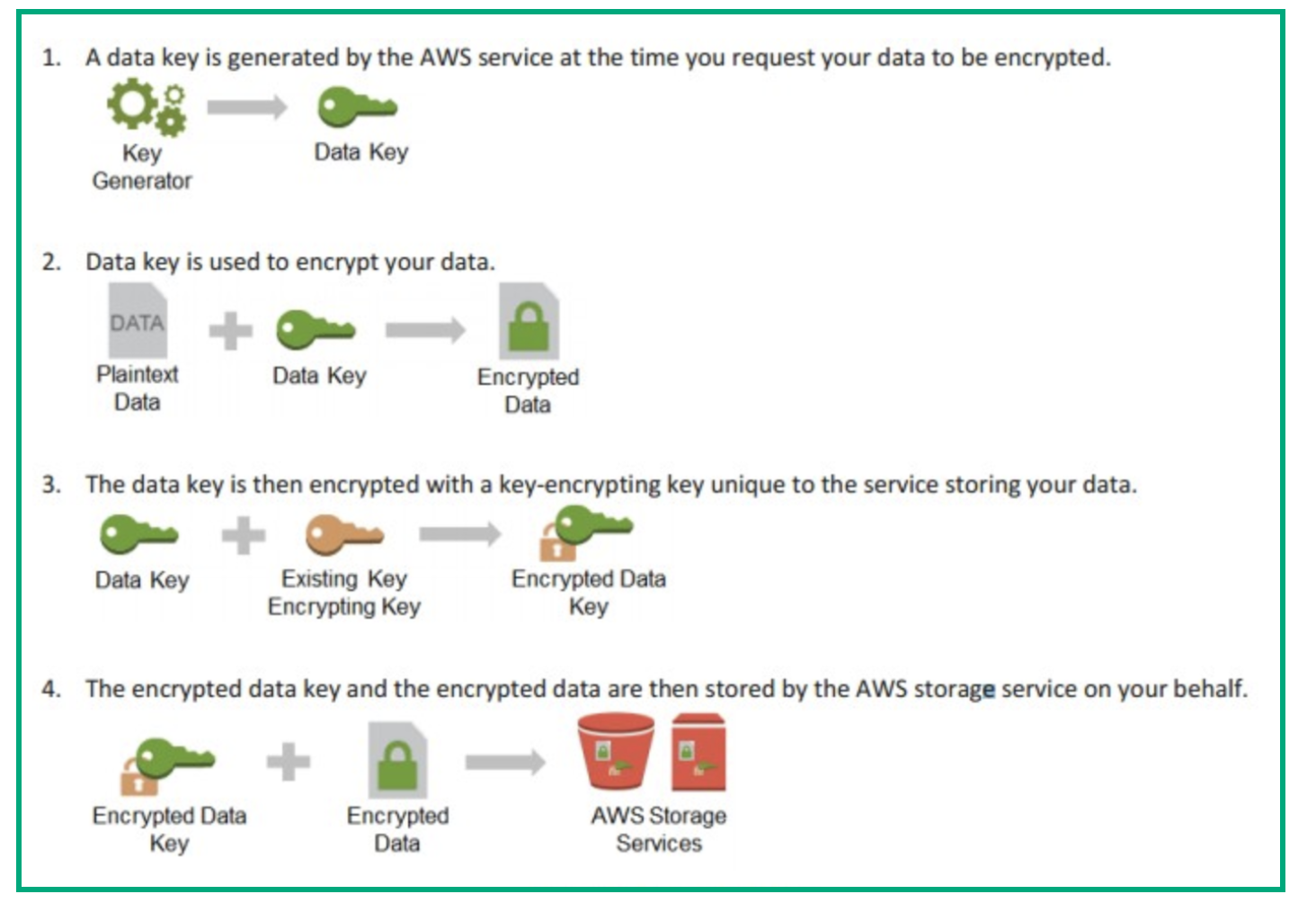Generate Data Key From Kms
- Create a Customer Master Key in KMS. Even though a CMK can be used to encrypt data up to 4K in size, it is primarily used to encrypt/decrypt data encryption keys. Generate a Data Encryption Key - Used to encrypt data by using symmetric encryption algorithms. Encrypt the data key by using the CMK. Store encrypted data and encrypted data key together.
- For more details on PCI DSS compliant services in AWS, you can read the PCI DSS FAQs. Q: How does AWS KMS secure the data keys I export and use in my application? You can request that AWS KMS generate data keys and return them for use in your own application. The data keys are encrypted under a master key you define in AWS KMS so that you can.
- Generates a unique data key. This operation returns a plaintext copy of the data key and a copy that is encrypted under a customer master key (CMK) that you specify. You can use the plaintext key to encrypt your data outside of KMS and store the encrypted data key with the encrypted data.
- Dec 13, 2017 In envelope encryption we generate a data key by using our CMK at KMS. When generating the data key, AWS sends us both the plaintext key and the encrypted key (using our CMK). Then we use the.
- ATTRIBUTES
Key Management Service APIs. Use these APIs to manage keys for Key Management Service (KMS). Access to the API endpoints is governed by the access level of the service ID that makes the call. Nov 12, 2019 If you are converting a computer from a KMS host, MAK, or retail edition of Windows to a KMS client, install the applicable setup key (GVLK) from the following tables. To install a client setup key, open an administrative command prompt on the client, type slmgr /ipk key and then press Enter.
Paws::KMS::GenerateDataKey - Arguments for method GenerateDataKey on Paws::KMS
This class represents the parameters used for calling the method GenerateDataKey on the AWS Key Management Service service. Use the attributes of this class as arguments to method GenerateDataKey.
You shouldn't make instances of this class. Each attribute should be used as a named argument in the call to GenerateDataKey.
Values for attributes that are native types (Int, String, Float, etc) can passed as-is (scalar values). Values for complex Types (objects) can be passed as a HashRef. The keys and values of the hashref will be used to instance the underlying object. For the AWS API documentation, see https://docs.aws.amazon.com/goto/WebAPI/kms/GenerateDataKey
EncryptionContext => Paws::KMS::EncryptionContextType
Specifies the encryption context that will be used when encrypting the data key.
An encryption context is a collection of non-secret key-value pairs that represents additional authenticated data. When you use an encryption context to encrypt data, you must specify the same (an exact case-sensitive match) encryption context to decrypt the data. An encryption context is optional when encrypting with a symmetric CMK, but it is highly recommended.
For more information, see Encryption Context (https://docs.aws.amazon.com/kms/latest/developerguide/concepts.html#encrypt_context) in the AWS Key Management Service Developer Guide.
GrantTokens => ArrayRef[Str Undef]
Serial key generator pes 2018 download. A list of grant tokens.
For more information, see Grant Tokens (https://docs.aws.amazon.com/kms/latest/developerguide/concepts.html#grant_token) in the AWS Key Management Service Developer Guide.
REQUIRED KeyId => Str
Identifies the symmetric CMK that encrypts the data key.
To specify a CMK, use its key ID, Amazon Resource Name (ARN), alias name, or alias ARN. When using an alias name, prefix it with 'alias/'. To specify a CMK in a different AWS account, you must use the key ARN or alias ARN.
For example:

Key ID:
1234abcd-12ab-34cd-56ef-1234567890abKey ARN:
arn:aws:kms:us-east-2:111122223333:key/1234abcd-12ab-34cd-56ef-1234567890abAlias name:
alias/ExampleAliasAlias ARN:
arn:aws:kms:us-east-2:111122223333:alias/ExampleAlias
To get the key ID and key ARN for a CMK, use ListKeys or DescribeKey. To get the alias name and alias ARN, use ListAliases.
KeySpec => Str
Specifies the length of the data key. Use AES_128 to generate a 128-bit symmetric key, or AES_256 to generate a 256-bit symmetric key.
You must specify either the KeySpec or the NumberOfBytes parameter (but not both) in every GenerateDataKey request.
Valid values are: 'AES_256', 'AES_128'
NumberOfBytes => Int
Specifies the length of the data key in bytes. For example, use the value 64 to generate a 512-bit data key (64 bytes is 512 bits). For 128-bit (16-byte) and 256-bit (32-byte) data keys, use the KeySpec parameter.
You must specify either the KeySpec or the NumberOfBytes parameter (but not both) in every GenerateDataKey request.

This class forms part of Paws, documenting arguments for method GenerateDataKey in Paws::KMS
The source code is located here: https://github.com/pplu/aws-sdk-perl
Please report bugs to: https://github.com/pplu/aws-sdk-perl/issues
Generate Data Key From Kms To Meters
To install Paws::KMS::GenerateDataKey, simply copy and paste either of the commands in to your terminal
Office Kms Keys
For more information on module installation please visit the detailed CPAN module installation guide.